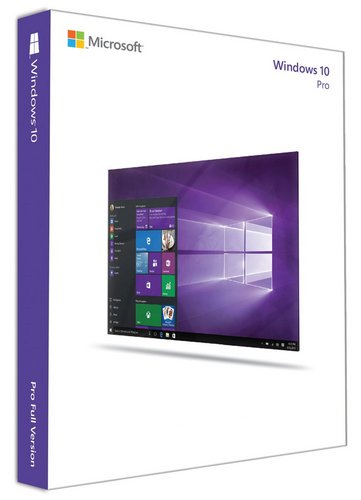Microsoft Will Not Support Upcoming Processors Except On Windows 10
by Brett Howse on January 15, 2016 9:05 PM EST
Microsoft has long been the bastion of long term support for older platforms, so today’s support news out of Redmond is particularly surprising. Intel launched its 6th generation Skylake cores back in August, and support on Windows 7 has been not as strong as Windows 10 right out of the gate. It’s not terribly strange that new features like Intel’s Speed Shift will not be coming to Windows 7, but today Microsoft announced that going forward, new processors will only be supported on Windows 10. Skylake will only be supported through devices on a supported list, and even those will only have support until July 2017.
For the average consumer buying a new PC, this is not a huge issue. Generally, consumers buy a PC and use the operating system that it comes with. That is going to be Windows 10. But the enterprise schedule is often much more drawn out when it comes to desktop operating system support. Windows XP was the most famous example of this, with businesses clinging to it well past its best before date, because Windows Vista and newer versions of the operating system significantly changed the system rights and driver models, rendering older programs incompatible.
The move to Windows 7 was very drawn out, so perhaps Microsoft is trying to avoid this again in the future, but moving an enterprise to a new desktop OS can bring a lot of testing requirements, training, and back-end infrastructure updates which are all non-trivial. Microsoft has made its name in the enterprise by being generous with support lifetimes, and I think what is most troubling about today’s news is that Windows 7 has long-term support until January 14, 2020, and Windows 8.1 until January 10, 2023. News like this is going to catch a lot of companies off-guard, since they would have been expecting to have at least until 2020 to migrate off of Windows 7, and many of these companies have just finally moved to Windows 7 after a decade or more on XP.
To give just 18 months with these support policies is likely not what companies want to hear. This doesn’t mean that Windows 7 will be end of life in July 2017, but if you can’t run it on new hardware, this is going to put a dent in device sales too. If companies are not ready to move to Windows 10, they may have to stick with older hardware.
This does not just affect Intel based machines either. According to the blog post by Terry Myerson, Windows 10 will be the only supported Windows platform for Kaby Lake (Intel’s next gen 14 nm processors), Snapdragon 820 (Qualcomm), and Carrizo (AMD).
Going forward, as new silicon generations are introduced, they will require the latest Windows platform at that time for support. This enables us to focus on deep integration between Windows and the silicon, while maintaining maximum reliability and compatibility with previous generations of platform and silicon. For example, Windows 10 will be the only supported Windows platform on Intel’s upcoming “Kaby Lake” silicon, Qualcomm’s upcoming “8996” silicon, and AMD’s upcoming “Bristol Ridge” silicon.
After July 2017, computers on the supported list that are still running Windows 7 will still get security updates, but any updates specific to that platform will not be released if it risks the reliability of other Windows 7 or 8.1 platforms.
To me, the oddest part of the announcement is who it is coming from. When Intel releases a new CPU, it is generally the motherboard makers working with Intel who provide the correct BIOS emulation modes and drivers for older versions of Windows. It’s somewhat odd that Microsoft is the one announcing this news rather than a company like Intel or AMD stating they won’t be supporting the older platform.
For those in the business world, this blog post may force you to reconsider your upgrade plans, or at least your hardware evergreen cycle. A full list of supported PCs for the 18-month period is supposed to be released next week.
Source: Windows Blog










125 Comments
View All Comments
eddman - Friday, January 15, 2016 - link
Bad title. It gives the impression that if you have older processors, you won't be able to continue using windows 10, which isn't the case.It should read "Microsoft To Support New(er) Processors Only On Windows 10".
tamalero - Friday, January 15, 2016 - link
Agree with you, I was starting to rage.. then read the article..Felt like a clickbait article.
Also, is dailytech dead? it hasnt updated in months.
GTVic - Friday, January 15, 2016 - link
Renamed to YearlyTech. Wikipedia has a note on the inactivity. I think the editor wants to see how much ad-click income he can get with no effort.ImSpartacus - Friday, January 15, 2016 - link
Lol, do you think it covers the cost of hosting?Murloc - Saturday, January 16, 2016 - link
well if they fired all editors they don't have many expenses do they?Murloc - Saturday, January 16, 2016 - link
I guess Mick was tired of writing clickbait.ImSpartacus - Saturday, January 16, 2016 - link
Never. That was his reason for existence.magreen - Saturday, January 16, 2016 - link
Ugh. I despised his writing. He was the single reason I stopped ever reading DailyTech.Mr Perfect - Sunday, January 17, 2016 - link
Single reason? But there where so many! ;) The toxicity of the comments pushed me away from that site, though I probably stuck with it too long and picked up bad habits.ciparis - Saturday, January 16, 2016 - link
Dailytech was an absurdly poorly-written mound of sensationalist techno-drivel. It never belonged on Anandtech.